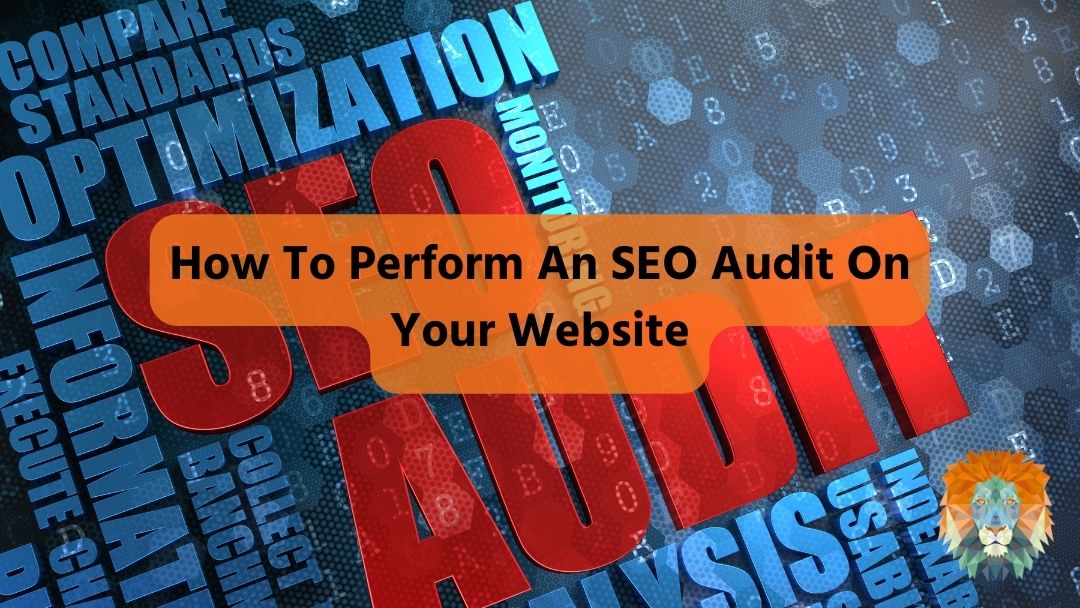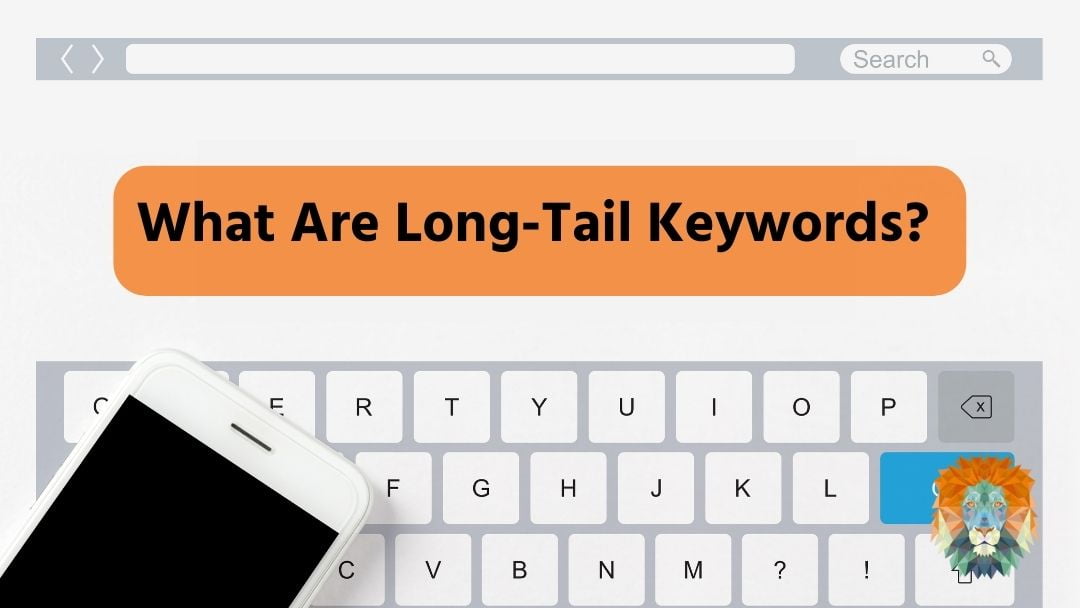Did you know there’s no such thing as ‘SEO’? Search Engine Optimisation is a term thrown around a lot, but the truth is SEO isn’t just one thing. It’s a huge network of information and strategy, all designed to do one thing – get you to the first page of Google ahead of your competitors.
SEO includes things like content, keywords, technical SEO, local SEO, eCommerce SEO, Mobile SEO and off-page SEO. Some of those you, as a business owner, have an influence over, while some areas will need a professional SEO audit and support to work effectively. You could invest in all of them at once, or only choose the approaches that are most relevant to your business. It really is up to you which angle you pursue, and that’s one of the reasons results can vary from business to business.
But no matter what your business does or your priorities are with SEO, there is one area you need to pay attention to: your on-page SEO. So today we’re going to show you how to do a basic on-page SEO audit for your website, and what improvements you could make.
What’s ‘On-Page’ SEO?
While a lot of the other aspects of SEO look at the signals for your website that happen externally (e.g backlinks on other websites), on-page SEO is all about looking inwardly at your website itself. Specifically, about looking at your content and making sure it’s optimised for both search engines and users. This is often done using keywords, headings, title tags and internal links.
This is a foundational part of any SEO effort, which is why we are so confident that your business needs to be keeping an eye on it. Google’s own ‘How Search Works’ guide states that:
‘The most basic signal that information is relevant is when a webpage contains the same keywords as your search query. If those keywords appear on the page, or if they appear in the headings or body of the text, the information is more likely to be relevant.’
It really couldn’t be any clearer than that. But Google is constantly evolving, and on-page SEO now is much more than getting the right keywords into your text by any means necessary. If you want your content to rank highly on Google now, you need to take other factors into account, including:
- User experience
- Search intent (which is different to keywords)
- Page load speed (You can get an idea of your page speed from Google’s own tool PageSpeed Insights)
- Bounce rate
- Dwell rate
- Click-through-rate
But how do you know if your site is performing well, or not-so-well? And how do you correct it if it’s not?
Performing An SEO Audit On Your Website
An SEO audit is the process of going through every single page of your website (including articles etc) and checking them against a series of on-page SEO requirements. That sounds much more complicated than it is, so let us help you through it. Below we’ve put together a basic list of things you need to check for, and what they mean. We recommend going through this list twice – the first time just to understand what your website is currently doing and make notes, and the second time while you are actually making changes, so you can tick off when something has been done. On that note, let’s get started!
Title Optimisations
Let’s start at the top with titles. Your page titles are arguably the most important factor in SEO. So you should make sure they all include your target keywords – including your home page. Good page titles will have a unique title tag for each page, accurately describe the page content, and be informative and short – typically under 60 characters.
Meta Descriptions
These are the small bits of text shown in search results, so they should accurately describe your page and make the reader want to learn more. Make sure you have written a unique description for each page, rather than letting Google choose what to display.
Check Your Brand Name
Type your business name into Google and see what comes up. Here you’re checking for negative things (like a bad review) showing up in the results, as this can have an impact on your SEO. If they do, work to rectify or remove them.
Set Up Snippets
Google snippets is a relatively new feature, where Google will show lists at the top of its search results. So if you want to leapfrog ahead of your competition, try to include lists in your posts, with H2 or H3 tags as the subtitle. There’s a fantastic guide on how to set up posts for snippets here, but for now just look at how many of your posts include lists, and where you could add some.
H1 Tags
The easiest thing to optimise on any page is the H1 tag. This tag should be the same or slightly different to the page title, visible to users (check your page settings), styled differently from your other headings, and only used once per page. This should be done on every page of your website, even the home page.
Sub-Headings
The other headings in your post (or subtitles) need optimising too. These are known as H2 and H3 tags and can be used multiple times on one page/post. However, you should use them sparingly, and make sure they are keyword optimised and balanced on the page.
Opening Paragraphs
For best results, your target keyword should be included in the first paragraph, or 100 words of your page/post. You don’t have to go overboard, but make sure it’s in there once or twice.
Text Content
If you’re using images, video or any other non-text elements on the page, make sure you have some text context as well. Since search engines can understand text better than other elements, it makes their job easier.
E-A-T Content
E-A-T stands for Expertise, Authoritativeness and Trustworthiness, and these are 3 things search engines really value. So much so that Google has included it in their ranking criteria – if you want to rank highly you need to have authority and expertise about a topic. There are lots of ways Google decides if you meet these criteria, including the quality of content on your pages and the number of links.
Beautify
On-page SEO is about users as well as search engines, so putting some effort into how things appear on the page is important. Formatting and styling should be visually appealing and consistent, with font sizes and colours that are easy to read.
Images
Include images on your pages, but make sure they are optimised. When uploaded, you should edit the file name and alt text of the image to include your chosen keywords, and alter the size so that it can load quickly.
Category Pages
A category page is how Google decides what parts of your website belong where. This is an area often missed by developers, so it’s worth reviewing. Each category page should have its own optimised title, description and content. If you’re running an e-commerce website this is even more important.
Internal Links
Links should come from within your own website as well as externally. When reviewing each page, consider if there is another page on the site it’s relevant to. If it is, add a hyperlink in some relevant anchor text.
Credit
Linking out to other high-quality websites on the internet can significantly boost your own SEO performance. So when writing pages or posts, consider any good quality sources you could link to that would be relevant to your audience. The more, the better!
Bonus Point
There are a lot of tools out there that can help you through the process of auditing your website. So if you’re a complete beginner to the world of SEO, these can be helpful when finding your feet, and can support you in making some of the more technical changes. We can do a free SEO audit on your site to get you started, or alternatively, we recommend starting with SE Ranking for on-page SEO. They have a 14-day free trial.

Had that left you feeling a bit overwhelmed? Yeah, that’s not really surprising! SEO is an incredibly vast and complex art, and it’s something that experts have to keep learning and practising to stay ahead of the changes.
At Lion Spirit Media, we help businesses like yours separate from the herd on Google with a well-optimised website. We pursue highly targeted and relevant traffic for your websites by significantly improving your search engine visibility, which starts by getting your on-page SEO just right. For more information, just get in touch with the team today and book your free consultation.





0 Comments